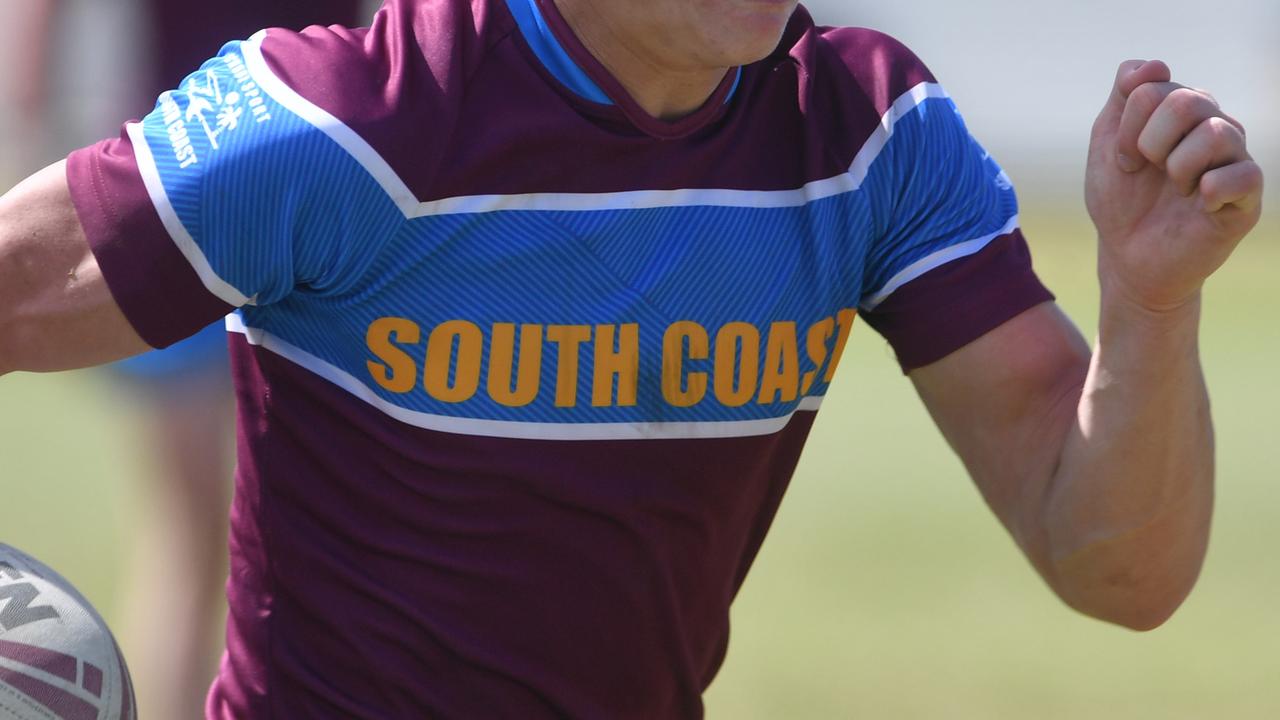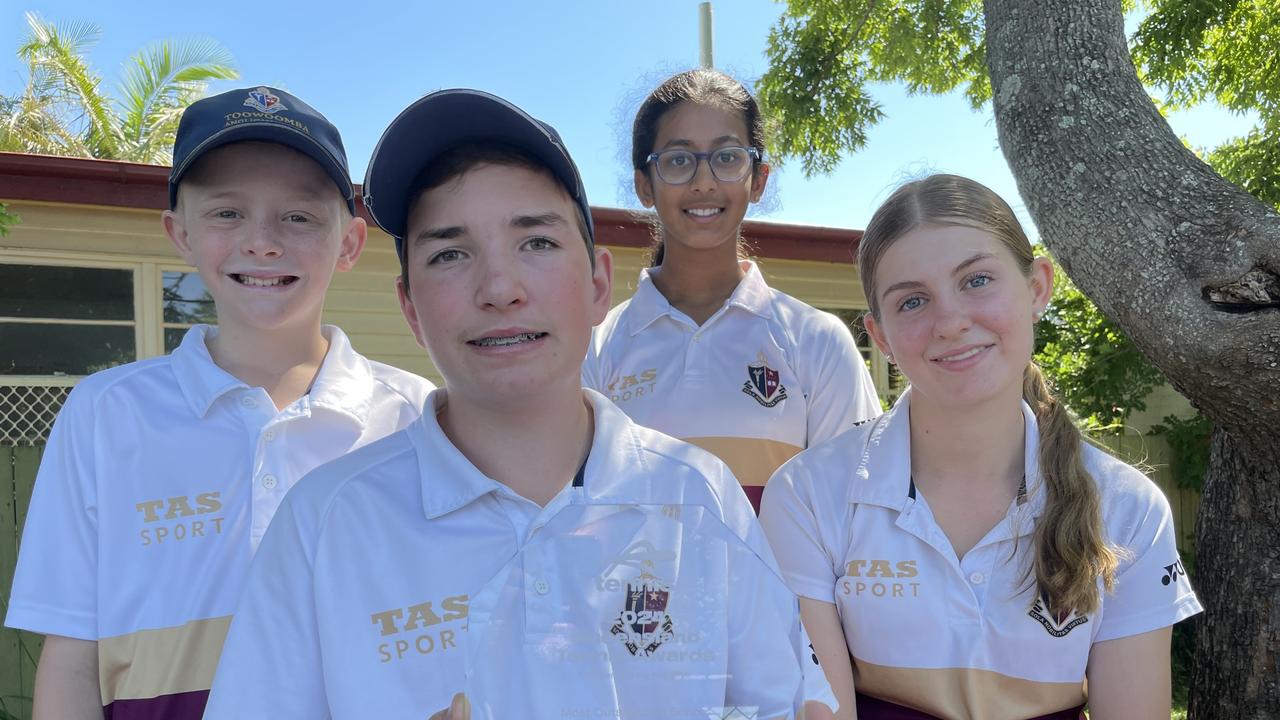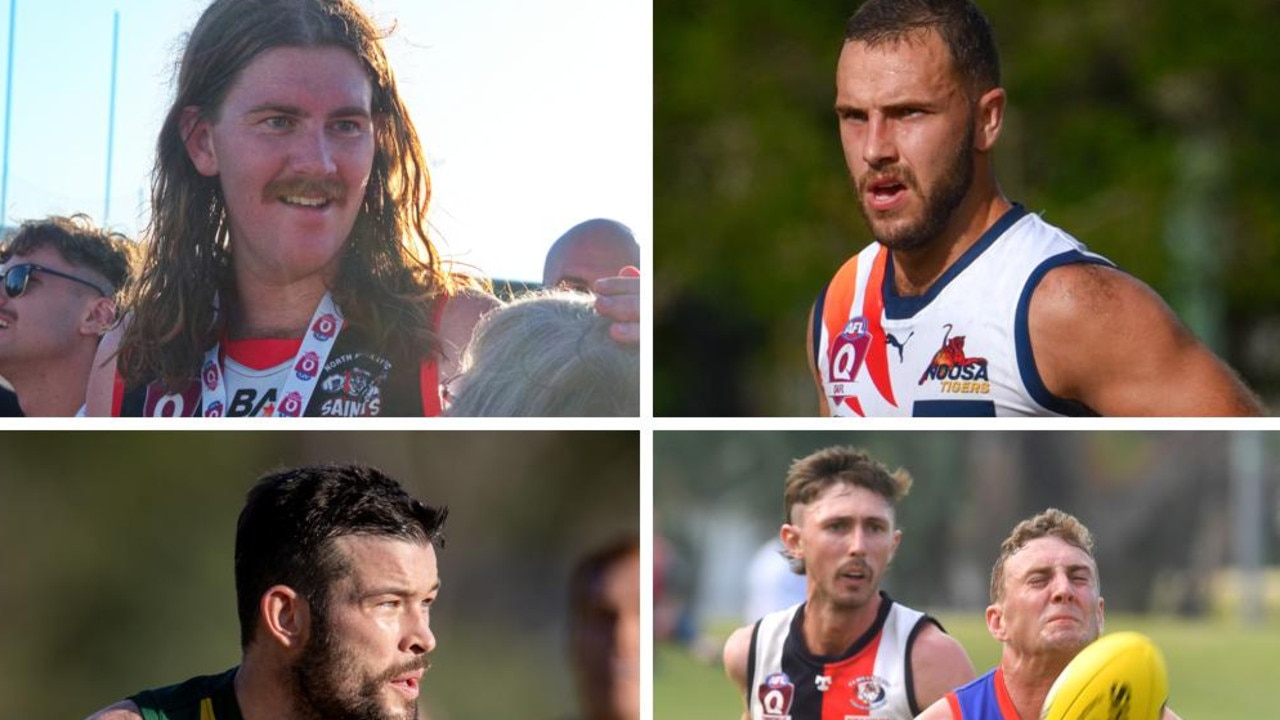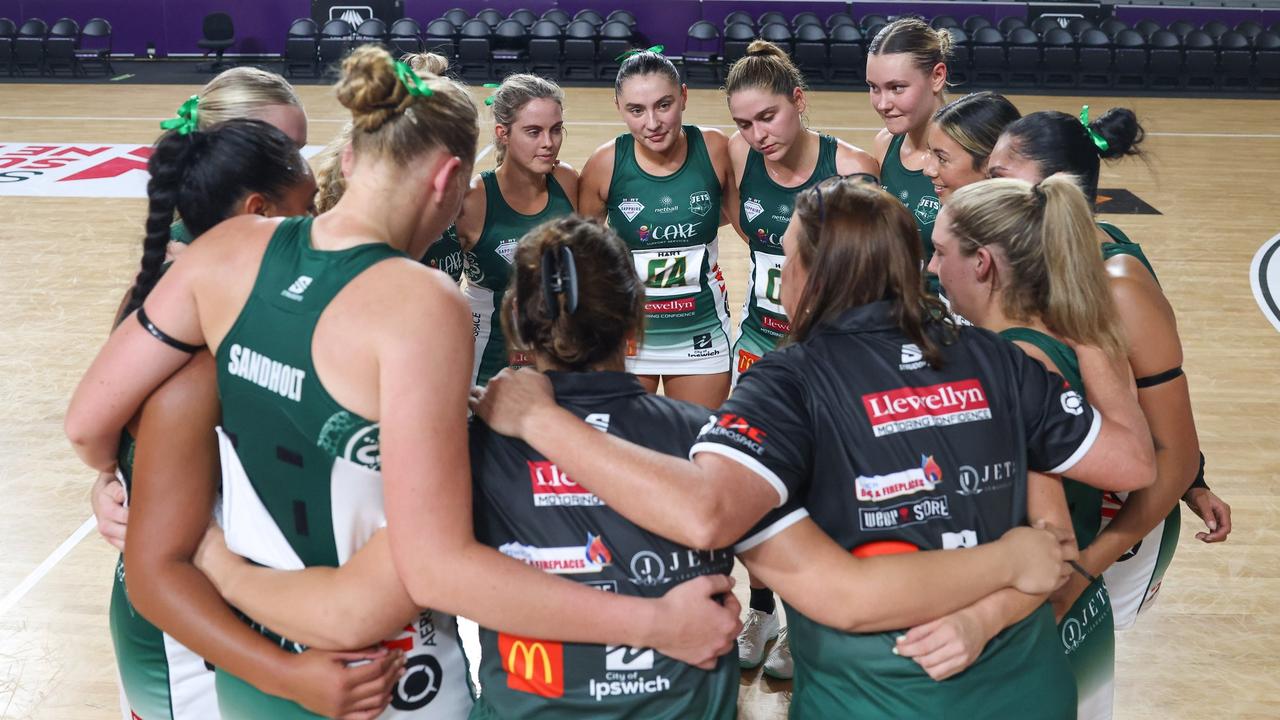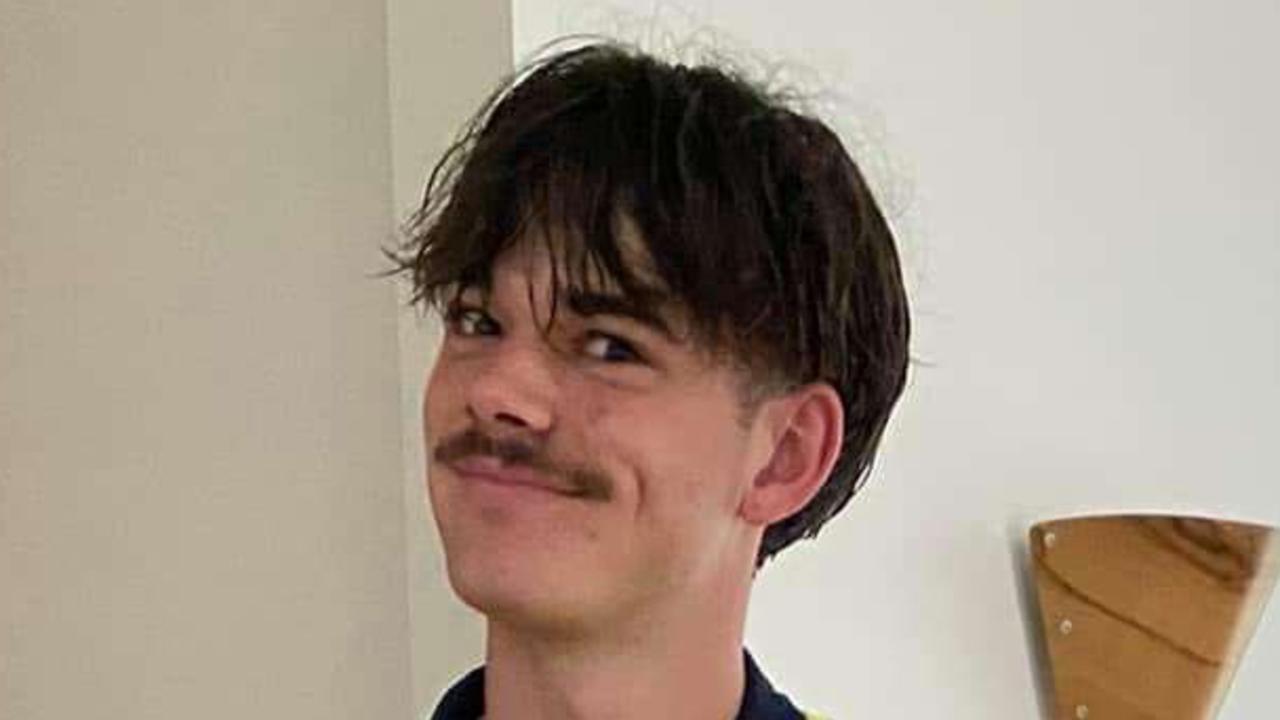Toowoomba’s Jeremy Peacock set to take on Paris for 2024 Paralympics
Growing up with Cerebral Palsy Jeremy Peacock felt like an outcast. Now the triathlete is ready to inspire the next generation of Paralympians. Read the Toowoomba athlete’s inspiring story.

Sport
Don't miss out on the headlines from Sport. Followed categories will be added to My News.
Australian para triathlete Jeremy Peacock is set to compete in his first Paralympics in just a matter of weeks, but the 33-year-old recalls a time when the dream was never even close to a reality.
Growing up in Toowoomba, attending Toowoomba Preparatory School and Toowoomba Grammar School, Peacock struggled with his identity and would try to cover up his Cerebral Palsy.
However, now as he is set to embark on a life-changing trip to Paris, he could not be prouder of who he is.
“Growing up I never really considered myself to have CP (Cerebral Palsy) even or to be impaired, mainly because I just never saw people like me and thought I was bit of an outcast,” he said.
“Fortunately enough with my condition and the severity of it for me, I can hide it, especially when you go to Grammar, when you had to wear long pants and what not.
“For me it impacts my leg, I could semi-hide it a lot.
“Growing up I never wanted to say anything about my condition but now coming to terms with it and growing up and accepting it, for me to be able to give back to that community – Cerebral Palsy but then also Queensland and Toowoomba as well, it gives me immense pride and privilege to be able to do that.”
Peacock said not having a someone to look up to and someone to relate to for much of his life, was one of the biggest challenges he faced as a child.
“I was wanting to fit in, in a world where I wasn’t not meant to, but I wasn’t going to be your normal kid,” he said.
“It became quite evident during high school, where I was wanting to run cross country and athletics.

“When you’re 16, everyone’s getting bigger and stronger and you’re just not able to go at their pace.
“I was determined and I still made it to those events but I was wanting to get to Queensland, I was wanting to get into nationals – there was no way that was going to happen.
“I think back then it was sort of becoming a bit of a reality that well I don’t fit in, I can’t do this here, but still at that point, that was 2008, so Beijing (Paralympics), para sport still wasn’t really being covered.
“I didn’t even know about it, my life could have been very different if back then someone tapped me on the shoulder in high school and went ‘hey, have you heard of para athletics’.
“My journey might have been very different, I might have accepted my condition much earlier on.
“But it was only later down the track when the likes of Dylan Alcott and Kurt Fearnley and you start hearing these stories and they become a bit more profiled, that you actually start looking into it and go ‘hang on I actually can qualify for this’.
“That’s how I hope I can be for the generation that is coming up to Brissy (Brisbane) 2032 and what not, I hope I can inspire that 12 year old kid to give it a go or keep going and look into different avenues of para sport.”
While the likes of Alcott and Fearnley were trailblazers for the parasport community, it was much later in life that Peacock fully came to terms with his condition and realised it was a genuine pathway for him to pursue.
“It became known that there was parasport and that was probably from London 2012, but at that stage I was still very adamant that I didn’t have this condition or I didn’t want people to know I had the condition, even though I knew I had it of course,” he said.
“It really wasn’t until 2019 where I had turned to cycling by that stage and one of the persons I rode with, she was a below the knee amputee and raced for Australia for cycling.
“The turning point was talking to another impaired or disable person about it and just seeing how much enjoyment and fun they had from it to travel the world, to do something you’re passionate about.”
“F--k me, this is insane”
With the Paris Olympics now in full swing, anticipation for the upcoming Paralympics is slowly building for Peacock, although he admits, it still hasn’t quite sunk in yet.
“I am very excited but I will be honest, it still hasn’t really hit me,” he said.
“I still haven’t had that moment where it actually fully hits you and you actually know that you’re going.
“I think because the way that we qualify is over such a long time frame, it’s not like we do one race and you have to hit one time, it is over a 12-month period.
“I sort of knew I had that spot not 100 per cent confirmation, but I was fairly confident I was going to get selected back in March or April so at the moment it sort of just feels like I’m training towards world championships or something like that – I know its big – but it hasn’t hit me.

“I must say watching the Olympics, seeing the medals it’s like ‘OK I really want one of those’.
“I think it will slowly start to hit me but right now I am definitely excited and immensely proud but the actual feeling of ‘I’m going to be a Paralympian’ it still hasn’t me hit yet.”
Peacock admits however, that the sight of all the behind the scenes videos online of the Olympic Village has gotten him excited for the experience he is set to have.
“The cardboard beds, we will be sleeping on those,” he laughs.
“We get exactly the same, which is great, you look back, I’ve heard stories of Athens, it was very different back then, so it shows how far we’ve come from previous years.
“Triathlon falls quite nicely in the middle of the competition schedule so for the first four or five days I’m going to be pretty focused and not get too distracted.
“Then after the event I can go nuts, I can try all the food hall options, I can go and do the game centre and have fun and enjoy it.”
Another aspect he looks forward to inside the village is the chance to meet fellow Paralympians.
“I’m based in Melbourne now so I train at the Victorian Institute of Sport and we see a couple of them through there,” he said.
“But people like Brenden Hall or the wheelchair basketball team, I’ve never met those guys but I’ve seen them and would love to meet them and share stories so that is going to be pretty cool.
“We’re no longer the big fish in a small pond, we’re in a big, big pond and we’re a very small fish.”
While he expects some of the aspects of his first Paralympic experience to be overwhelming, Peacock can take confidence knowing he is already familiar with the course, having competed in the test event last year.
“I must say when I was on the bike for the recon and that first turn onto the Champs-Elysees, you’re riding down the Champs with the Arc de Triomphe, there were a few expletives under my breath,” he said.
“During that recon ride you just go f--k me, this is insane.
“During the race, the head’s down, you obviously don’t see very much, you’re very concentrated.”
The test event also prepared Peacock for the reception for the French crowd, who were electric even during the test event.
“It is easily by far going to be the largest crowd I ever race against,” he said.
“Even just in that test event, that noise from the French was insane.
“If you were running or riding next to a French person, you couldn’t hear anything so that was just during the test event so I can’t imagine what we will have on race day.
“It is definitely going to be something that I hopefully will experience again but it’s gonna be an absolutely magical experience.
“Fortunately or unfortunately, I don’t know how to look at it, in my category in my race, there will be three French athletes on the start line and all of them could medal.
“The backing of the French public is going to be really behind those guys which is then going to lift our race I think even further.”

Swimming in the river? You’d be in-Seine not to
The Parisian river has been the talk of the globe in recent days with the men’s triathlon in the Olympics postponed by a day due to the state of the water quality in the River Seine.
While some have raised concerns about the potential safety of the event, Peacock has little cause for concern and has taken a much more positive mindset.
“If it was me, I’d just say give me the antibiotics afterwards,” he said.
“Who can say they’ve swam in the River Seine with the Eiffel Tower in the backdrop?
“For me I just try not to think about it it, it is out of our control.
“You can’t control what’s going to happen, I am just going to focus on what I can control.
“I’ve trained for a triathlon, if it has to become a duathlon, we actually did a duathlon at the test event, so I’ve experienced that as well.
“So you just take it as it is and try not to think about it because it is that extra energy or extra stress that you don’t need.”
Breakthrough delayed by pandemic
After the sliding doors moment in 2019 where he realised parasport was an opportunity for him, Peacock approached what was meant to be his first international season in 2020.
However, the Covid pandemic meant that was pushed back by two years.
Despite this setback, he made up for lost time in his debut season in 2022 where he finished third in the world championships.
“I was meant to start my racing just as Covid hit, the weekend the whole nation got locked down was meant to be my first international race,” Peacock said.
“So I spent pretty much just two years on the sideline just waiting to go, but 2022 was my first year internationally and finished off with a third place at the world championships which I didn’t expect.

“That was a pretty special day, here’s hoping I can replicate that in a month’s time.”
While the delay to his first foray into the international arena no doubt frustrated him, there was a silver lining which he has found from the pandemic.
With working from home now integrated into society, Peacock has been able to give himself more time to train, while still balancing working commitments.
“I am still working full time to pay the bills, I was fortunate my boss is quite flexible and the work I do can be a little flexible as well,” he said
“So I’ll normally do all my training, it’s usually like 6am to 1pm, then I’ll start work at 2 o'clock and then work the afternoon and into the evening.
“It’s pretty close to working two full time jobs, but just having that flexibility, Covid whilst it was crap, it has actually helped in regards as you can work remotely and that’s helped me big time.
“If Covid hadn’t happened I actually don’t know if I’d still be doing this, our instinct or what we knew before Covid, it was still very much you’ve got to be in the office five days a week and you’ve got to be face-to-face.
“I don’t know how I would have done training around doing a strict 9-5 work ethic.
“Having frank, honest conversations with your boss, it is quite daunting but fortunately my boss is also a sports fanatic and has been 100 per cent behind me the whole time.
“When I went to him back in 2019 and 2020 that I have this opportunity that I might be able to go to the Paralympics, it was like ‘what can we do’ we tried numerous things but this was sort of what landed and for now it seems to have worked.”
The selection for this year’s games was the ultimate reward for the countless hours of hard work which he went through juggling work and training.
“There were so many days where I was so fatigued and the last thing I felt like doing was working or going to do that next session, that is all worth it,” Peacock said.
“To make it to the Paralympics, it is all the early hours, it’s the sessions in the rain, it’s the times when you don’t want to go, the times when you do want to go.
“It’s all about being consistent and all those ebbs and flows and just ride the waves and rollercoaster so that when you get to this pinnacle you can enjoy it.
“But you can also look back and go ‘that was totally worth it’ and I do look back and go ‘I’m glad I’ve taken this punt’.
Green and gold pride
For any child watching the Olympics or their favourite sport in Australia, there is no honour quite like wearing the green and gold and representing a sports-mad country.
This is no different for Peacock, who has cherished every moment on the international stage.
“Every time you put that green and gold suit on, it makes you feel very privileged but also very proud that you’re getting to wear those colours,” he said.
“Not many people get to represent Australia in something they love and cherish.
“It makes me immensely proud to represent Australia.
“At the end of the day, triathlon is an individual sport but it is really the team behind the athlete that gets you to where you are.
“It’s the likes of my cross country coach from Grammar – Mark Oliphant – all those years ago.

“He installed the foundations of what I’m doing today, so probably not every race I think back to that, but definitely on big occasions you think back.”
Peacock identified Oliphant as one of the biggest inspirations for him as a child but the TGS cross country coach was not alone in helping Peacock reach his dreams.
“Firstly my mum and dad, my dad’s the reason I’m in endurance sport,” he said.
“He was an ex ultra-marathon runner so growing up I just wanted to be like him.
“He was the one that got me into running and then got me into cycling and is now following the dream.
“He actually coached me at Prep, he worked at Prep, I had him as my cross country and athletics coach.
“When you’re 10 or 11 years old and you’re coached by your dad with all the other school kids, it’s a bit weird but it’s also pretty cool to have your dad there as your coach.
“Once I went to Grammar for high school, Mark Oliphant, Mr Oliphant – I looked up to him so much, I just saw him as the god of running.
“He was such a good runner. he was doing triathlons at the time as well.
“To see Mr Oliphant running and how quick he could run, I was like ‘I want to run like that one day’.
“He really pushed me to train well and sort of pushed my boundaries and he was a big, big mentor and is probably one of the reasons why I am here today.”
With the chance to represent all those who have helped him along the way, Peacock is excited for what awaits him when he makes his way to the start line.
“Obviously I would love a medal, my category is very, very competitive, I think anyone who stands on that start line could potentially get a medal,” he said.
“A medal would be amazing but at the same time to also just enjoy the experience and actually realise what I’ve achieved to even get to that point to make the start line.
“So I think it would be a bit of both, would love a medal, that’s why we’re going there, that's why I do all the training and do all the sacrifices to represent Australia and obtain a medal.
“But at the same time it is my first one so I don’t want to put too much pressure on myself and treat it as another race.”
Peacock is looking for all the support he can get as he prepares for the Paralympics, anyone who wishes to donate to support his dream can do so on his profile page on the Australian Sports Foundation website.




